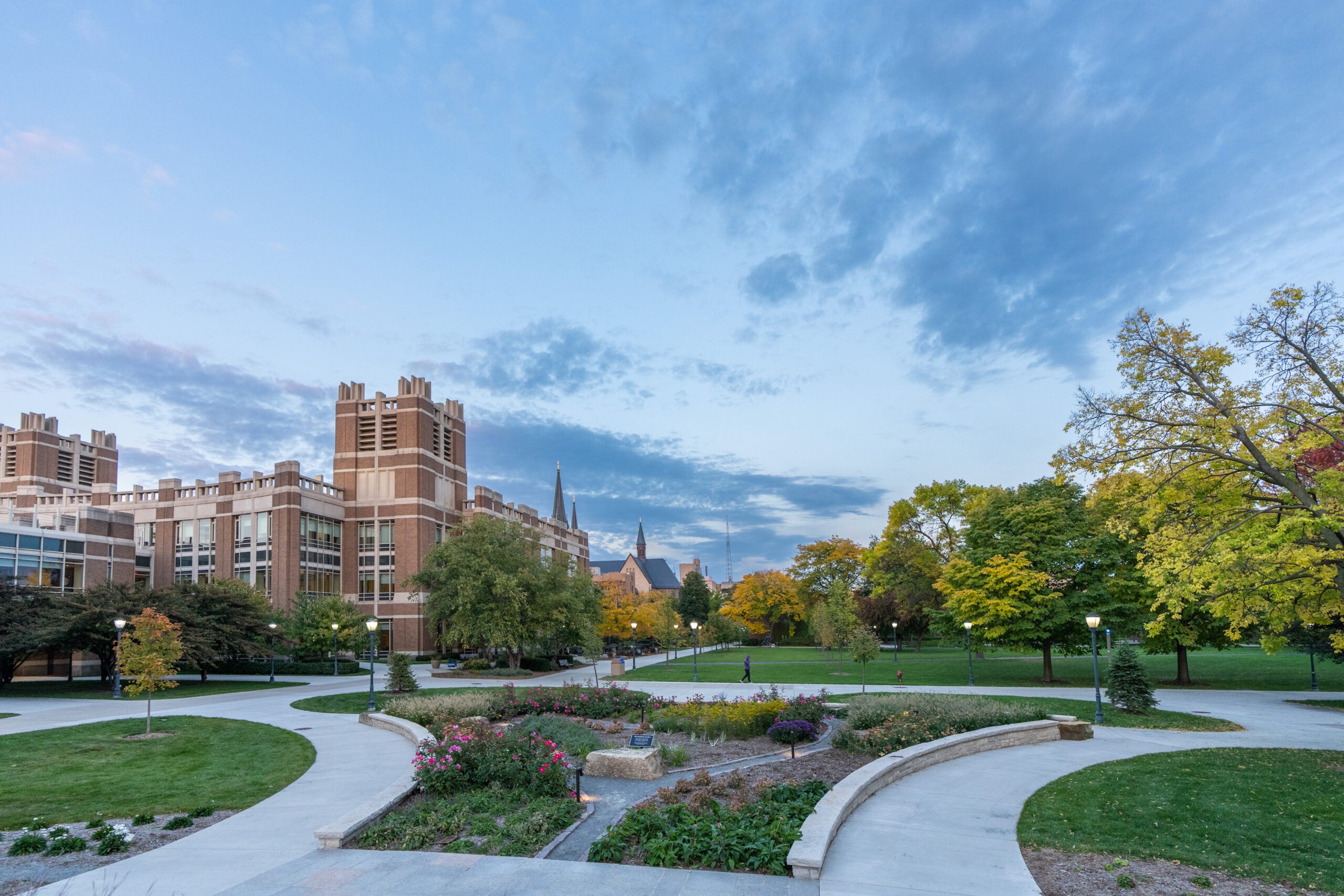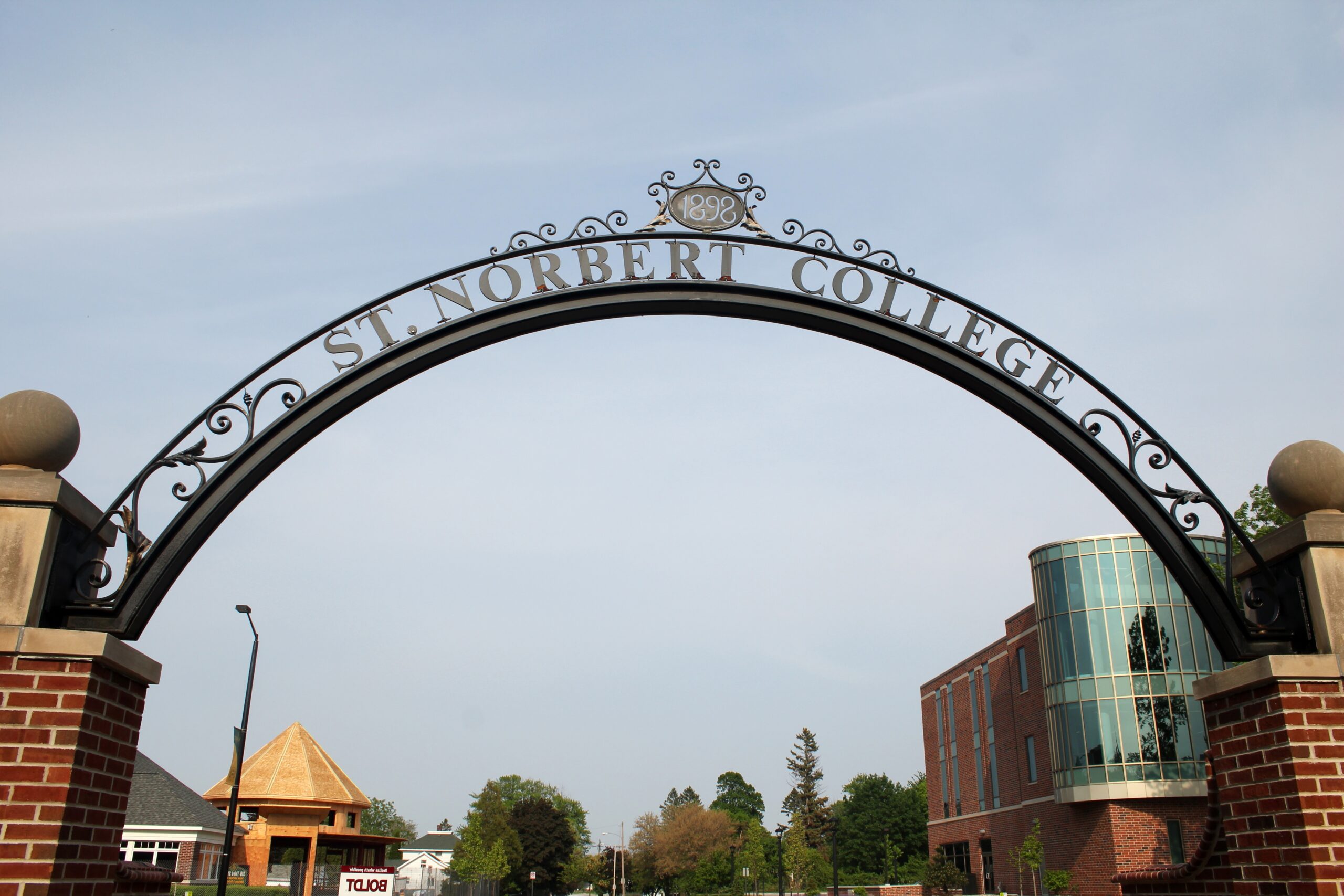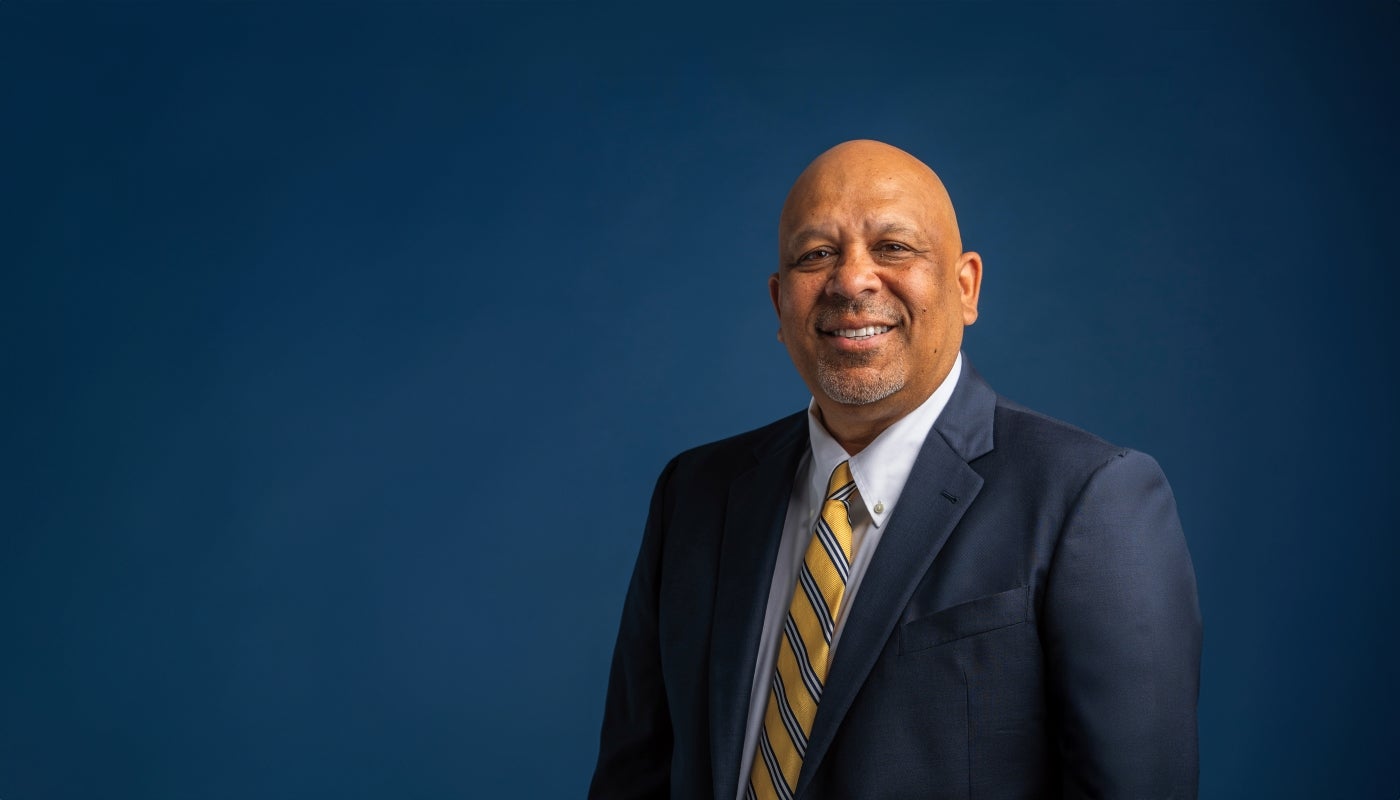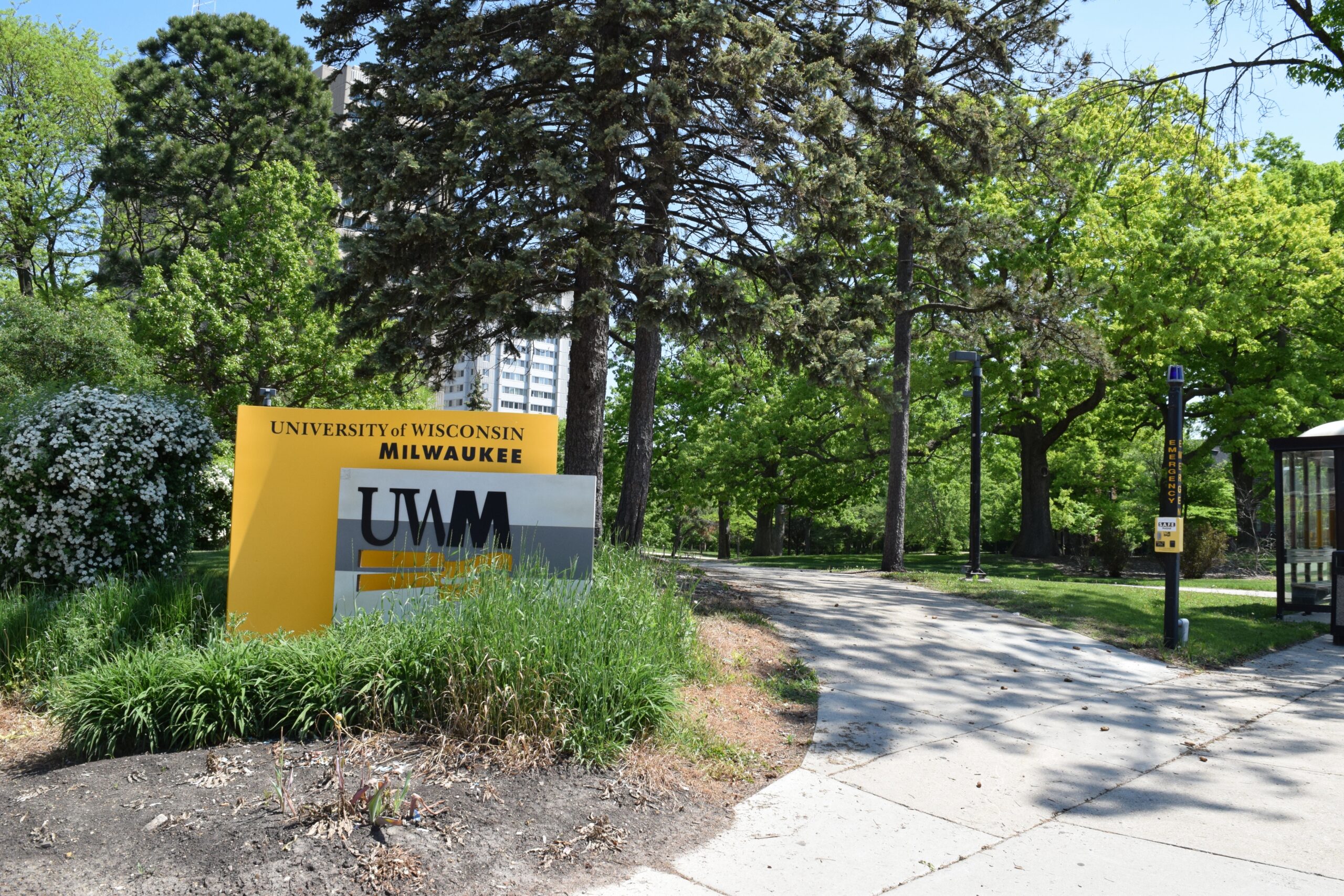For five years, Grant Gosizk has taught Marquette University undergrads to think about how literature and pop culture shape attitudes toward addiction.
Non-tenure-track, or NTT, faculty like Gosizk teach many of Marquette’s core curriculum classes. Every year, individual instructors sign new 10-month contracts with the university, earning $43,000 a year. Gosizk calls the arrangement “precarious.”
“I struggle to pay rent, I struggle to take care of aging family members and take care of my family,” the English teaching assistant professor said.
Stay informed on the latest news
Sign up for WPR’s email newsletter.
Now, Marquette’s local chapter of the United Campus Workers, or UCW, wants to win collective bargaining rights for NTTs in its Klingler College of Arts and Sciences.
But Catholic Jesuit schools like Marquette have a religious exemption from National Labor Relations Board jurisdiction. This means to have a union election, NTTs need a signed agreement with school leadership.
On Oct. 25, Marquette announced it would not sign the agreement.
“The direct relationship we have created with the faculty — especially over the last five years — was an effective way to go, and a preferable way to go, and so the university elected to utilize the exemption that’s provided religious universities under the National Labor Relations Act,” said Ralph Weber, the school’s General Counsel.
The school has had a standing committee on non-tenure-track faculty concerns since 2019, which Gosizk said was only formed after pressure from the union.
In a statement, the Marquette UCW said other Catholic universities, like Fordham University and Loyola University Chicago, have voluntarily chosen to bargain with their campus workers.
“Students, faculty, and staff are calling on Marquette University to follow the examples of these other Catholic, Jesuit universities and stipulate to a free and fair election administered by the NLRB or another third party,” the statement said.
According to the local, 550 students and 75 tenured faculty have signed a petition asking the school to recognize the bargaining unit, and over 65 percent of Klingler non-tenure-track faculty have signed union cards.
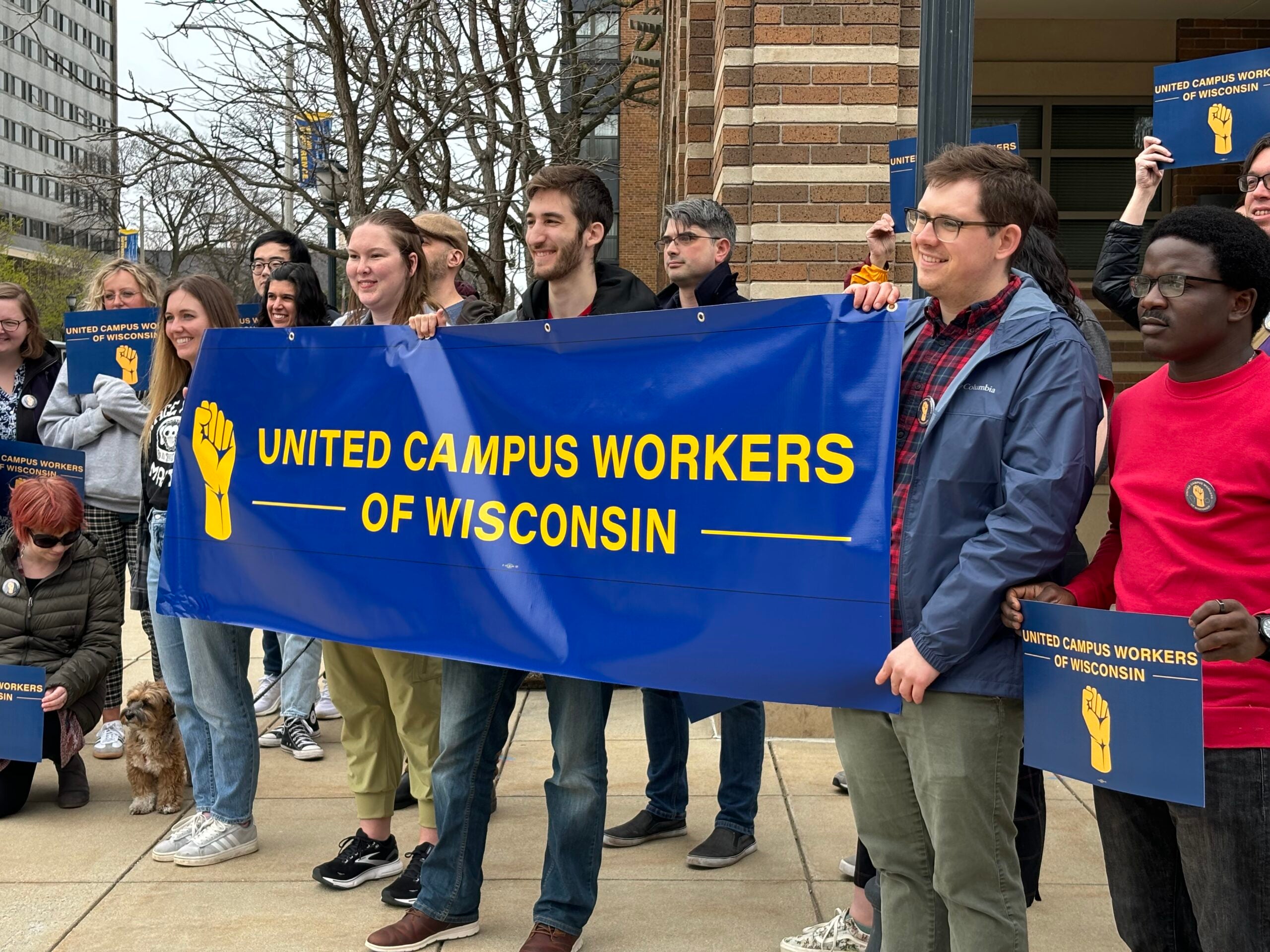
Demands include raises, new promotion structure
Currently, Marquette’s UCW is a minority union — employees join voluntarily and use it as an activist platform rather than a legal bargaining unit. Gosizk, who is on the union’s steering committee, said Klingler’s 80 NTTs would win better contracts if they could bargain collectively.
Currently, five years of continuous work earn NTTs a 2 percent raise, plus a chance to apply for three- or five-year contracts. The union wants a shorter “incubation” period for promotions.
“We don’t have unpaid leave protections,” Gosizk added.
“That five year period of incubation for your promotion is contiguous years of service,” he said. “So if you take off a semester for paternity, you now have to start that clock all over again.”
The union is calling for larger raises for non-tenure-track faculty promoted to longer contracts, and for higher base salaries. At Jesuit, unionized schools Loyola University Chicago and New York’s Fordham University, NTTs make $58,000 and $70,000, respectively.
Dueling interpretations of Catholic social teaching
“Being an institution that advances Catholic social teaching is at the core of why we exist and what we do,” said Weber, the school’s General Counsel. “And we respect that people can have different interpretations about the best way to advance that.”
Weber said Boston College and Seattle University, also Jesuit institutions, have claimed the religious exemption to collective bargaining.
Weber said the standing committee gave NTTs the chance to earn multi-year contracts after five years. He added there’s “more to come, frankly, in the coming months” about the school’s salary ranges.
He also said that further shortening the five-year wait for promotions “certainly can be a subject of discussion,” and said the committee fosters a “direct” and “collaborative” relationship with NTT faculty.
But Chris Gooding, a theology non-tenure-track faculty member at Marquette and a member of the union’s steering committee, said Catholic teaching is “unambiguous” about the issue.
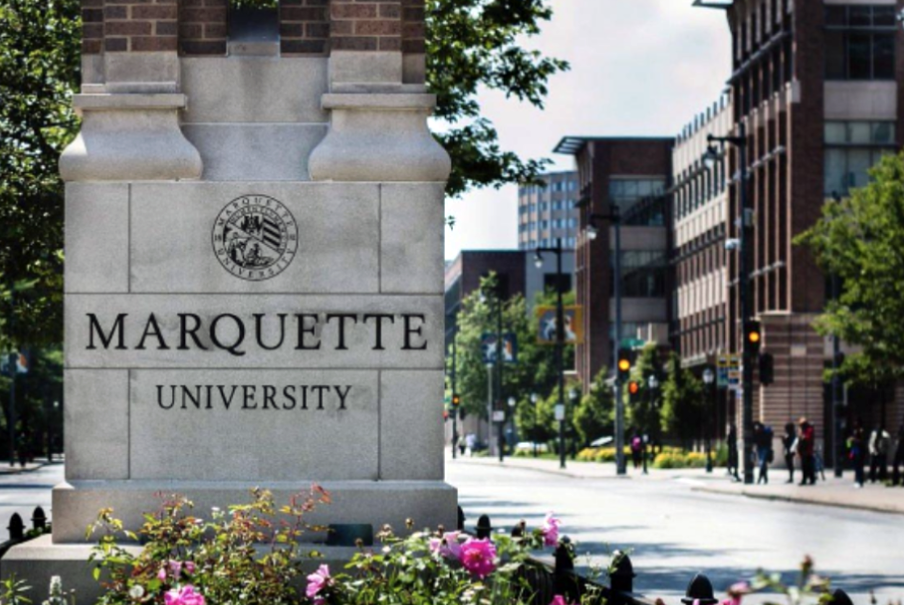
“It’s very clear in Catholic social teaching that unions should be a part of every workplace. They contribute to a good society, they allow workers to contribute creatively to their workplaces,” he said.
“It’s particularly hypocritical for Marquette to say, ‘We’re invoking this religious exemption,’ when the tradition and the mission that they’re representing says explicitly that unions should happen in church institutions first,” he said.
Gooding cited “Economic Justice for All,” a 1986 pastoral letter by the United States Conference of Catholic Bishops that says the “Church fully supports the right of workers to form unions or other associations to secure their rights to fair wages and working conditions.”
Pope Francis has frequently praised unions, saying “there is no good society without a good union” and “there are no free workers without a union.”
The Association of Catholic Colleges and Universities does not take an official stance on unionization at its member schools.
Wisconsin Public Radio, © Copyright 2025, Board of Regents of the University of Wisconsin System and Wisconsin Educational Communications Board.
